Related Research Articles
"I Still Love You" is a song by the Bee Gees primarily written by Barry, Robin & Maurice Gibb. It was released as a double A side of "Living Eyes" and on the album Living Eyes. Produced by the Gibb brothers with Albhy Galuten and Karl Richardson.

Now Voyager is the second solo album to be recorded by Barry Gibb, although it was his first to be released. Now Voyager contains his biggest solo hits, "Shine, Shine" and "Fine Line". The album also included the Olivia Newton-John duet "Face to Face", which was released as a promo single. Gibb co-produced the album with Karl Richardson, who had been working with the Bee Gees since 1975. The front cover photograph was taken by Alex Henderson at Victoria Baths, Manchester.
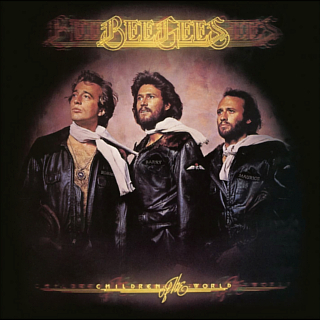
Children of the World is a 1976 album by the Bee Gees. The first single, "You Should Be Dancing", went to No. 1 in the US and Canada, and was a top ten hit in numerous other territories. The album has sold over 2.5 million copies. It was the group's fourteenth album. The album was re-issued on CD by Reprise Records and Rhino Records in 2006. This was the first record featuring the Gibb-Galuten-Richardson production team which would have many successful collaborations in the following years.

Living Eyes is the Bee Gees' sixteenth original album, released in 1981. The Bee Gees turned away from the disco sound that was prominent on their work in the middle-to-late 1970s with this album. However, the album was not a commercial success, perhaps due to their being so strongly associated with disco. It sold 750,000 copies worldwide, compared to 16 million copies of their previous studio album, Spirits Having Flown, in 1979. While it did not sell well in either the UK or the US, the album itself was a Top 40 hit in the majority of territories in which it saw wide release.

Eaten Alive is the sixteenth studio album by American singer Diana Ross. It was first released by RCA Records on 24 September 1985 in the United States, with EMI Records distributing elsewhere. It was Ross' fifth of six albums released by the labels. Primarily written and produced by Barry Gibb of the Bee Gees, with co-writing from his brothers Andy, Maurice, and Robin, the album also includes a contribution from Ross' friend Michael Jackson who co-wrote and performed on the title track.
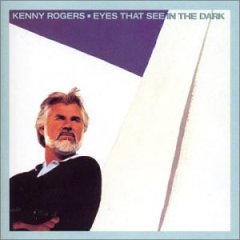
Eyes That See in the Dark is the 15th studio album by Kenny Rogers, first released by RCA Records in August 1983.
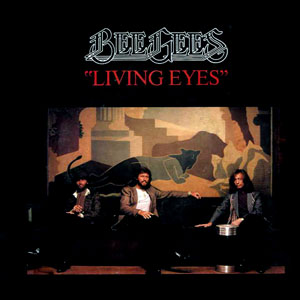
"Living Eyes" is a power ballad recorded by the Bee Gees and was released in November 1981 as the second single and title track off the LP of the same name. It was written by Barry, Robin & Maurice Gibb. The sound of this single was closer musically to the rest of the album than its predecessor, "He's a Liar".

After Dark is the third and final studio album by English singer-songwriter Andy Gibb. It features his last US Top 10 single "Desire", "I Can't Help It" and two Bee Gees numbers "Rest Your Love on Me" and "Warm Ride".

"Guilty" is a vocal duet between Barbra Streisand and Barry Gibb. The song was written by all three Bee Gees: Barry, Robin & Maurice Gibb. Released as a single from Streisand's 1980 album of the same name. "Guilty" peaked at No. 3 on the US Billboard Hot 100 chart and No. 5 on the adult contemporary chart. In the UK, the song reached No. 34 on the UK Singles Chart. The single was certified gold by the RIAA. In addition, "Guilty" won a Grammy Award in the category Best Pop Vocal Performance, Duo or Group. The song also appeared on the 2001 Bee Gees compilation, Their Greatest Hits: The Record.

Heartbreaker is a 1982 album by American singer Dionne Warwick, her fourth for the Arista label. The album was released on September 28, 1982. It was largely written by the Bee Gees, and produced by Barry Gibb with Karl Richardson and Albhy Galuten; Gibb and Galuten also served as musicians on the album.
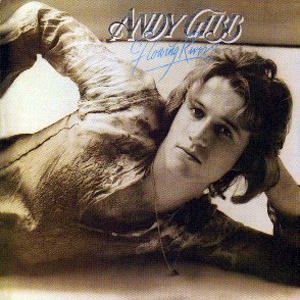
Flowing Rivers is the debut studio album by English singer-songwriter Andy Gibb. The album was produced by Albhy Galuten and Karl Richardson, with Barry Gibb on two tracks. It was released in September 1977 on RSO. Flowing Rivers was re-released by Polydor Records in 1998 in CD version.
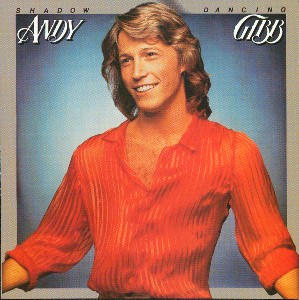
Shadow Dancing is the second studio album by English singer-songwriter Andy Gibb, released in June 1978 in the United States and September 1978 in the United Kingdom. It was Gibb's highest charting album in some countries including America and in Canada. This LP was his only album to chart in the UK. Four singles, including the three US Top 10 singles, were released from the album.
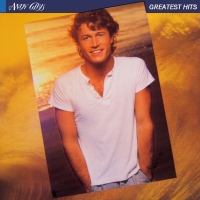
Andy Gibb's Greatest Hits was the first compilation album by Andy Gibb. It was released in 1980. Aside from the previous singles it also contains three new songs being "Time Is Time", "Me " and "Will You Love Me Tomorrow", the latter sung together with P. P. Arnold.

"Buried Treasure" is a song written by Barry, Robin & Maurice Gibb, and recorded by American country music artist Kenny Rogers. It was released as the B-side of "This Woman" in January 1984 as the third single from the album Eyes That See in the Dark. The song reached number 3 on the Billboard Hot Country Singles & Tracks chart and number 2 on the Canadian RPM Country Tracks chart.

"(Our Love) Don't Throw It All Away" is a song penned by Barry Gibb and Blue Weaver and recorded by the Bee Gees in 1977 on the Saturday Night Fever sessions but was not released until Bee Gees Greatest (1979). It was released in September 1978 as the third single by Andy Gibb on his version from his second studio album Shadow Dancing.
"This Woman" is a song written by Barry Gibb and Albhy Galuten and was performed by American country recording artist Kenny Rogers. It reached No. 2 in the US Adult Contemporary Chart and No. 23 in the US Pop Chart. It was published by Gibb Brothers Music and Unichappell Music.
"Save Me, Save Me" is a song written by Barry Gibb and Albhy Galuten in 1977. It was recorded by the group Network from New York City. The flipside was "Not Love at All". This song is the first track credited to Gibb and Galuten. George Bitzer was hired to play synthesizers and keyboards and he later worked with Barry and Andy Gibb. It was recorded in Criteria Studios, Miami around April 1977, same session as Samantha Sang recorded his well-known hit "Emotion". The song was issued in Netherlands and the B-side was "Holly". John Vinci on vocals Richie Cerniglia as "Richie C" on guitar Mike Maniscalco as "Mike Coxton" on keyboardHowie Blume as "Howard Davidson" on bass Butch Poveromo as "Jean Paul Gaspar" on percussion, Mike Ricciardella — drums and George Bitzer on keyboard, synthesizer.
"You and I" is a song written by Barry, Robin and Maurice Gibb and was recorded and performed by Kenny Rogers from his 1983 album Eyes That See in the Dark. Despite not being released as a single, it has been played on the radio, becoming one of Rogers' most popular songs. Barry Gibb sings background vocals on the intro, chorus, interlude. The performer of the song sometimes credited to 'Kenny Rogers and the Bee Gees' because Barry used his falsetto.
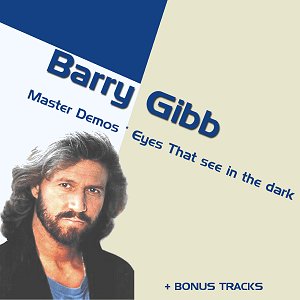
The Eyes That See in the Dark Demos is a demo version of the album by Barry Gibb. Originally circulating on tape among collectors and later also on CD the album saw a legitimate and wide release on iTunes in October 2006. Maurice Gibb contributed bass, guitar and synthesizer and Robin Gibb contributed background vocals on some songs in this demo album.

"Eyes That See in the Dark" is a song written by Barry and Maurice Gibb in 1982. It was performed by Kenny Rogers for his 1983 album of the same name. It reached #30 in the US Country Charts, #4 in the US Adult Contemporary Charts, #61 in the United Kingdom and #79 in the Billboard Hot 100.
References
- ↑ "Bee Gees – Paradise / Nothing Could Be Good (Netherlands release)". Discogs. Retrieved 8 December 2013.
- ↑ "Bee Gees – Paradise / Nothing Could Be Good (Japan release)". Discogs. Retrieved 8 December 2013.
- ↑ "Bee Gees - Gold & Diamonds". Discogs. Retrieved 8 December 2013.
- ↑ Brennan, Joseph. "Gibb Songs: 1981" . Retrieved 8 December 2013.